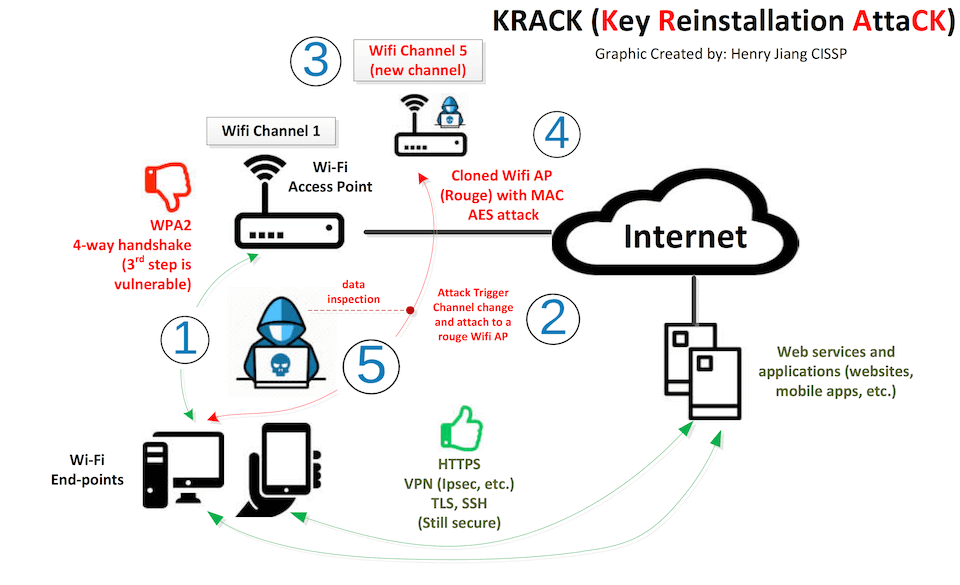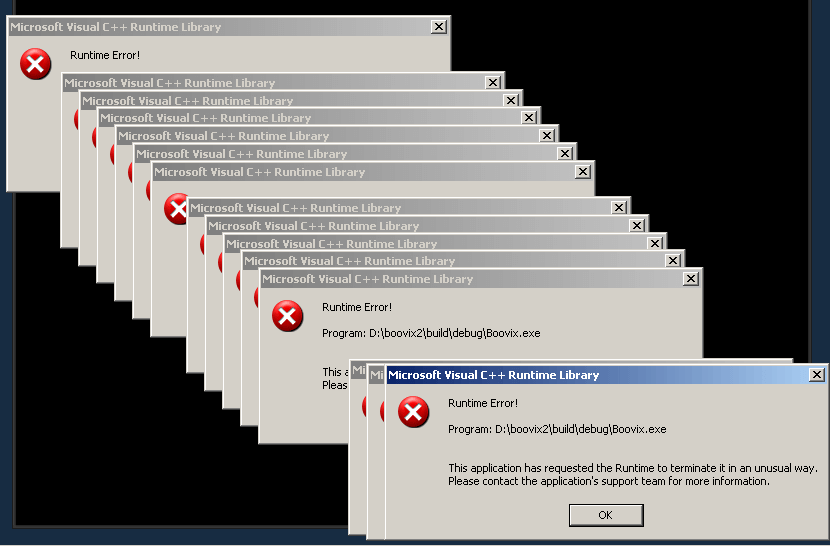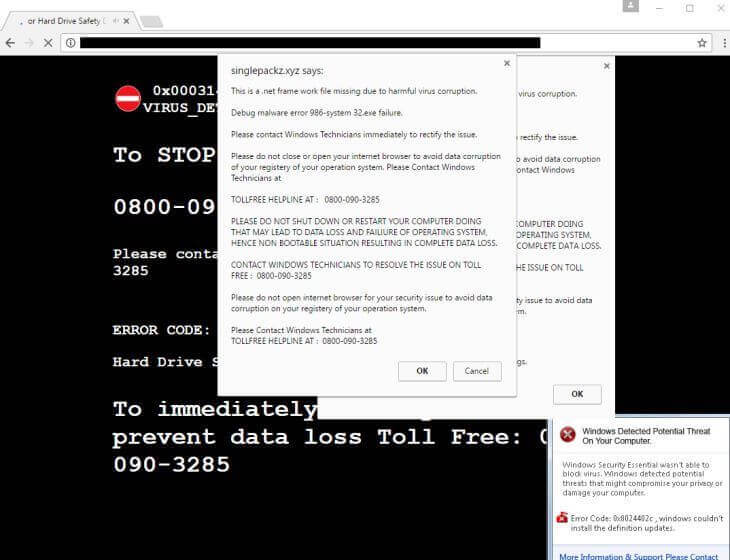Everyone has their vices. The world can be a big and exhausting place sometimes, which makes temporary escapes all the more important.
Some decide to bake cookies to escape, others exercise and many play video games. Seriously, for individuals of all ages, playing games is one of the preferred ways to relax and unwind.
On the surface, this is a totally harmless activity. Of course, there’s some debate about the effects of gruesome games, but for the most part, the benefits of playing games seem to outweigh the downsides. That being said, there is a downside to free online games, which is cybercrime.
Although many free gaming sites themselves are secure, there are often pop-ups and ads that can be dangerous. Below is some must-know information about the dangers of online gaming and how you can protect yourself.
If you feel that you are vulnerable to these types of malware attacks and are not savvy enough to keep yourself protected then consider a membership with HelpCloud Tech Support. There’s great value in having go-to experts available 24/7. Additionally, the membership includes the best in antivirus and firewall services: Webroot SecureAnywhere.
Popular Websites
Before delving into things, it’s important to define what free online gaming websites really are and how they work. Sites that offer free games generally make money from advertising or paid versions of their offerings. Most times, these websites are pretty safe. Their goal is to provide you with a break from day-to-day life, not to steal your information.
There are many places to go for free online games, but some stand out amongst the rest when it comes to avoiding spam, malware and viruses. Pogo is one such site. They offer around 100 free online games, from cards to puzzles. One of the neat things about this site is it can be more than a distraction. Some of their games are actually designed to challenge your brain and teach you new things.
FreeGames is another popular option for online players. You might know them from games like Candy Crush and PAC-MAN Classic.
Facebook games, like FarmVille and Words With Friends, launched in 2007 and can be played on your phone or the web. A great things about Facebook’s offerings is that their games are simple and fun, but they can easily be set aside. In other words, you can play them when you want and put them away when you’re busy. This is a huge benefit, as some other online games are addicting and hard to dismiss.
Online gambling is another huge part of free web-based gaming. If you’ve ever visited, Bovada, SportsBetting, BetOnline or Wild Casino, you might have indulged in some online gambling. Moreover, if you ever play fantasy sports, you’ve been involved in a form of online gaming.
Although the sites mentioned above are by no means comprehensive, they are some of the most widely used online platforms for free games. If you visit another site that’s not listed here and are interested to know more about its integrity, reach out to the computer customer support company My Fast PC.
Recent Hacks and Background
Earlier this year, the e-sports Entertainment Association (ESEA) announced that their website was hacked in December of 2016. The hacker requested a $100,000 ransom that they denied. When they refused to pay the sum, over 1.5 million user accounts were leaked.
Some of the site’s users had their personal information, such as their city, state, email address and date of birth, stolen. As of now, ESEA claims that they’ve fixed the vulnerability and are working to improve the company’s overall infrastructure. Unfortunately, they are not the only company to experience an issue like this …
Nearly every gaming website can be hacked if it has an access control issue, a software vulnerability or a faulty third-party integration. Various elements are required for a website to function. As such, websites represent complex ecosystems. Due to their multifaceted nature, there are many chances for websites to have vulnerabilities that can be exploited.
A hacker can gain control of a website by a brute force attack. They often try to guess possible usernames and passwords until they get one right. They may also reach out to users directly and try to learn their login information.
Another common vulnerability is software. One of the biggest cyber attacks of 2017 was a Key Reinstallation Attack, where hackers exploited a software issue to steal sensitive information. It’s easier than you’d think for an attacker to take advantage of you, whether they reach you through your browser, router or a website itself.
Third-party vulnerabilities are often seen on free gaming sites. As mentioned above, one of the main ways these sites make money is through advertising. Some malicious people will place corrupted ads on free gaming sites in the hopes users will click on them.
Practicing Caution
Needless to say, you should practice caution on every free gaming website you visit. A good way to do this is to install and update security software programs. More specifically, you should have antivirus and antimalware protection. These will help protect you from threats on web pages, emails and much more.
Next, you may want to create a special gaming profile on your computer. Right now, you’re likely logged into your computer as the administrator. In this role, you can alter your computer and tell it to carry out specific tasks. If you get hacked in this mode, your vulnerability is at an all-time high. To mitigate your risk, create a user account without administrative access and log onto it every time you’re going to play games online.
Another sound measure is to make sure you’re running up-to-date software. You should routinely check for software updates and download the latest offerings and patches to improve your security.
Lastly, make sure you’re backing up your important documents and files. This way, if your computer is compromised, you won’t lose the things that matter to you most.
Free Gaming Websites Are a Target
You might wonder why anyone would even hack a website in the first place. Some sites, especially free gaming sites, are targeted by criminals for a few reasons.
One of the reasons hackers like gaming sites is they can deploy drive-by-download attacks onto them. Many gaming sites offer free downloads or trial versions to their visitors. Users often download these offerings without much forethought and trust them because they come from the website.
Unfortunately, if a hacker has access to the site, they can inject malicious software into the download that can then harm users. You may think you’re simply downloading Candy Crush, but you could be downloading Candy Crush and a corrupt program that’s designed to drain your bank account.
Ransomware, Pop-Ups and Scareware
Other things to look out for when you’re on gaming sites include ransomware, pop-ups and scareware. If you accidentally download ransomware, you’ll find that your computer randomly locks itself. Next, a payment will be needed to unlock your computer.
This sounds fairly simple, but it can be complicated when it comes to payment. Of course, if you give them your debit card number or bank account information, they can exploit you more. You could use a virtual currency to stay anonymous, but you probably don’t have any extra Bitcoin laying around in the first place.
Pop-ups are all too common on gaming sites. They often say something like “You Need a Microsoft Update to Continue.” Generally, these messages are not truthful. If you follow their prompts, you’ll end up needing costly computer repairs, or you may even become a victim of identity theft.
Another common pop-up message is called scareware. Their messages often say something along the lines of “Your Computer Is At Risk – Download Now to Update!” Again, these messages are fake. They want users who fear viruses on their computers to take advantage of their offer.
Scareware can also be comprised of a bombardment of pop-up messages. One pop-up warning will appear, and before you can close it, another will come up. Sometimes, you can’t even click the “close” button on any of the windows.
It may seem like following the pop-ups instructions is the only way to get out of this situation, but that’s the last thing you want to do. Try not to click anything in the pop-up. Call My Fast PC right away so you can learn what’s happening and avoid putting yourself in harm’s way.
Use Complex Passwords
You’ve probably heard this before, but it’s significant enough that it deserves to be covered again. One of the best ways to protect yourself online, regardless of the websites you visit, is to create strong, unique passwords. It may seem cumbersome to create individualized passwords for your critical accounts, but it’s the best way to keep your information safe.
When you make a new password, you want it to be at least eight characters long and include upper-case letters, lower-case letters, symbols and numbers. Some examples of strong passwords are Jelly22fi$h and A//i$onBear.
If you’re not sure how to come up with a good password, you can use PasswordsGenerator.net. All you need to do is type in the password length and parameters you need, and the site will generate a password for you.
At the End of the Day, Always ‘Play Smart’
Now that you know more about online gaming, follow the tips and tricks above to keep yourself safe. Make sure you implement computer-based safety measures and pay extra attention to what you’re clicking on.
You’ll want to be wary of every offer that sounds too good to be true. If something seems to ask too much information, it should also be met with skepticism.
If you feel that you are vulnerable to these types of malware attacks and are not savvy enough to keep yourself protected then consider a membership with HelpCloud Tech Support. There’s great value in having go-to experts available 24/7. Additionally, the membership includes the best in antivirus and firewall services: Webroot SecureAnywhere.





